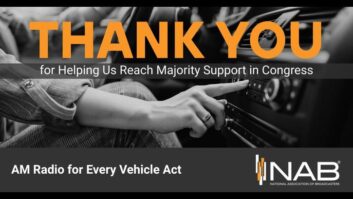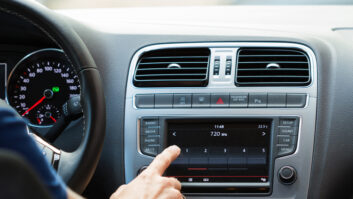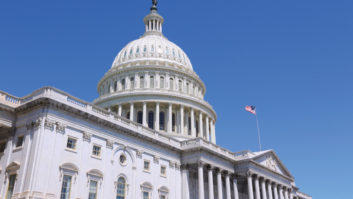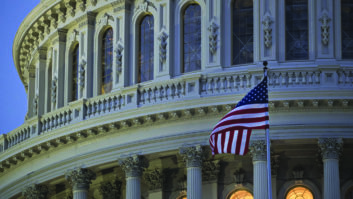Troy A. Miller is the president and CEO of the NRB, National Religious Broadcasters.
On March 29, the Wall Street Journal editorial board published a piece titled “Coming Soon: An AM Radio Mandate.”
In its negative evaluation of the AM For Every Vehicle Act, the editorial board skims over key details.

The board writes: “Some auto makers have dropped AM radio from EV models because their components can interfere with signals. The companies can mitigate electromagnetic interference with cables, filters and other materials… But these involve engineering trade-offs that can increase manufacturing costs.”
Sounds scary, but the federal number crunchers at the Congressional Budget Office concluded that “the unit costs of those updates are small” and noted that while the Department of Transportation would be authorized to assess civil penalties for noncompliance, it would likely collect very little.
The board further writes that AM is one of “multiple, redundant communication modes” that the Federal Emergency Management Agency (FEMA) uses to send out public alerts in times of emergency, and that the chance is “minuscule” that drivers wouldn’t be able to access vital safety information.
Ex-FEMA chiefs who have advocated for this legislation would beg to differ. In a Feb. 24 op-ed, former FEMA head Pete Gaynor warned Americans to consider the possibility of a future attack on U.S. communications infrastructure.
“It would be malpractice for the government to allow a few companies to take away its most effective means of keeping the public informed,” Gaynor wrote.
The editorial board contends that “Congress’s AM radio mandate will increase the cost of EVs, which auto makers will offset by raising prices on gas-powered cars.”
What does the editorial board believe automakers are planning to do with the valuable dashboard real estate they reclaim from radio? Keep prices down and load up the dash with other free services? Certainly not. The future of the auto dash is a buffet of monetized subscription services at best—and serious consumer disadvantages at worst.
In a video feature called “Apple, Google, GM and the $1.5 Trillion Battle for the Car Dashboard,” WSJ video correspondent George Downs reported, “Traditional automakers plan on using this space to sell a suite of features and services in a market that some analysts estimate will be worth $1.5 trillion by 2030.”
Whether or not you want a more connected experience with your car through such features and services, your car wants a more connected experience with you. “Automakers Are Sharing Consumers’ Driving Behavior With Insurance Companies,” the New York Times revealed in March 2024. Automakers are selling driver behavior data through opaque programs that many drivers had no idea they had opted into, resulting in skyrocketing insurance fees among other privacy intrusions.
Let’s be clear: Opposition to the AM For Every Vehicle Act isn’t about keeping dollars in drivers’ wallets. It’s about driving those dollars to the dashboard. If you think automakers’ goal is to yank AM radio, blame it on a subpar listening experience, and go no further, think again.







